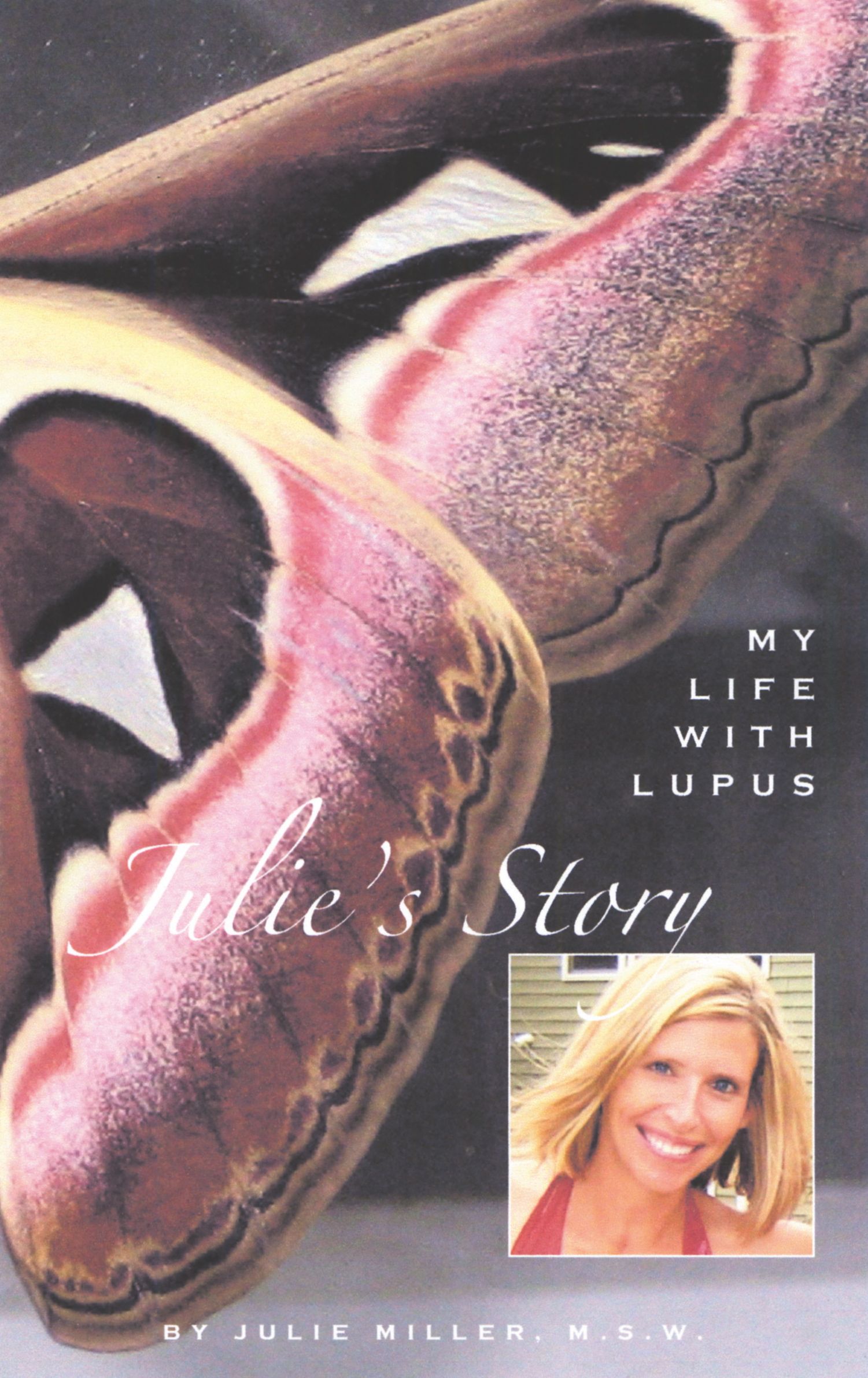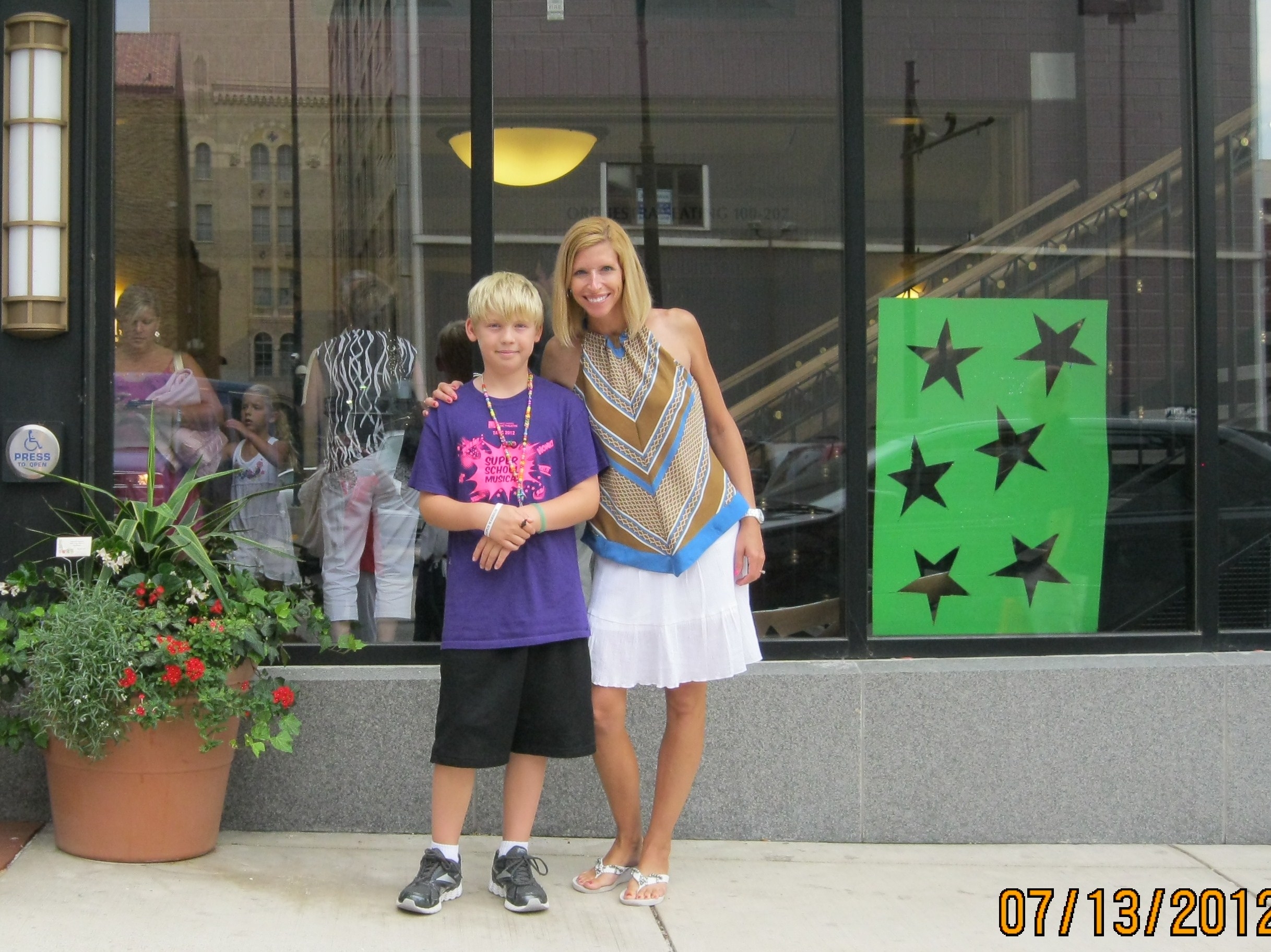Julie Miller is living with lupus, an autoimmune disorder with no cure and with symptoms that perplex doctors. Yet, more than 1.5 million Americans—ninety percent of them women—are currently affected by this disease. What's even more staggering is the fact that had Julie not pursued her gut feeling that her symptoms were more than the result of stress and anxiety, she would not be alive.
In 1998, Julie was finishing her masters degree and planning a wedding. She started experiencing some odd health problems: extreme migraines, joint pain, fatigue. When the pain was too much, Julie saw the doctor who deduced from her current lifestyle that she was simply suffering from anxiety. The remedy he gave was exercise—a common stress reducer. Julie tried it, but instead of finding relief, she gained twenty pounds and her symptoms got worse. She sought a second opinion, but that doctor gave her the same prognosis, and a few Vicodin for the pain.
"I was trying to relax and do the stress relieving exercises," Julie remembers, “but it got to the point that I couldn't even walk up a flight of stairs, I was so out of breath.”
At that point, Julie was hesitant to see another doctor. But she knew she could not go on without a change.

"Finally I was like, I need to get a third opinion," she said. “You know when your body is not right. You know when something is wrong.”
After a series of tests, Julie found out that her kidneys were failing and her chest cavity was filling with fluids. She was admitted immediately to the hospital for more tests—blood tests—and her initial diagnosis was leukemia. After eleven days in the hospital—and more tests—Julie was given the final verdict: Lupus.
"I was relieved that it wasn't leukemia," Julie said, “but at the same time I thought, what is lupus?”
When Julie was diagnosed, there was little known about the disease. Thankfully it is less of a mystery now, but there are still stones left unturned. In an effort to encourage research, and because of her desire to save other women the hurt and confusion she endured until her diagnosis, Julie wrote a book. Published in 2008, Julie's Story, My Life With Lupus, contains lessons Julie learned the hard way.
"I don't know how many women feel the same way I do, or are out there thinking the same way I do," Julie said. "I'm sure there are a lot of women suffering from the same symptoms I did, who have no clue."
In her book, Julie outlines symptoms she encountered prior to her diagnosis, including the large rash that covered her nose and cheeks—in a butterfly shape. If you or anyone you know is affected by lupus symptoms, Julie recommends seeing a doctor with specific qualifications necessary for deducing the symptoms of lupus.
"It really all depends on their symptoms, but most often the joints and muscles are affected; therefore, women should contact a rheumatologist. If the kidneys are involved, a nephrologist should be contacted. If any other internal organs are involved, there is a specialized doctor for each system. The challenge is getting all the doctors to work together and come up with a treatment plan," Julie said.

Julie also recommends taking action, before it's too late.
"Be aware of your own body. If you feel there's something wrong, don't wait to see the doctor," Julie said. When she saw the third doctor, he told her that her chest was filling up with liquid so quickly that if she would have waited even two more weeks, she would have gone into cardiac arrest. "I was two weeks away from death. That's scary. Think of all this life I would have missed."
Although Julie undergoes chemotherapy treatments and is prescribed a cocktail of daily medications, she's learned to live with her disease. And she says she thankful her diagnosis wasn't worse.
"I feel so blessed that it's just lupus. Other people have it worse. I really have to thank God every day that I've got such a good life. I could have turned out so different."
Written by: Erika Fifelski is West Michigan Woman magazine's editorial coordinator. She graduated from Michigan State University with a degree in journalism. Erika was born and raised in West Michigan, and after a brief stint on the sunrise side, she's home and loving it.




